Jesús Camacho-Rodríguez
The Tensor Data Platform: Towards an AI-centric Database System
Nov 04, 2022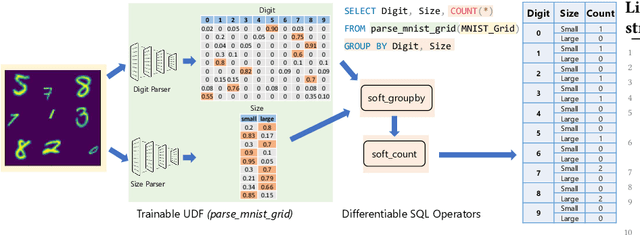
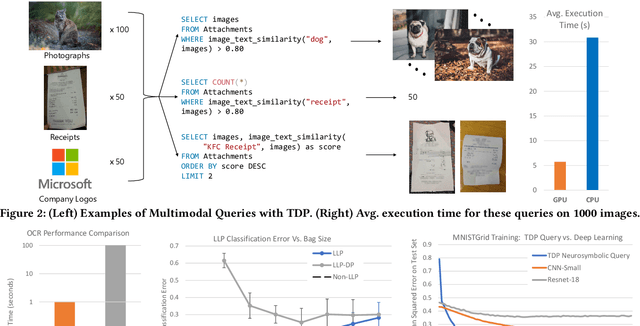

Abstract:Database engines have historically absorbed many of the innovations in data processing, adding features to process graph data, XML, object oriented, and text among many others. In this paper, we make the case that it is time to do the same for AI -- but with a twist! While existing approaches have tried to achieve this by integrating databases with external ML tools, in this paper we claim that achieving a truly AI-centric database requires moving the DBMS engine, at its core, from a relational to a tensor abstraction. This allows us to: (1) support multi-modal data processing such as images, videos, audio, text as well as relational; (2) leverage the wellspring of innovation in HW and runtimes for tensor computation; and (3) exploit automatic differentiation to enable a novel class of "trainable" queries that can learn to perform a task. To support the above scenarios, we introduce TDP: a system that builds upon our prior work mapping relational queries to tensors. Thanks to a tighter integration with the tensor runtime, TDP is able to provide a broader coverage of new emerging scenarios requiring access to multi-modal data and automatic differentiation.
Query Processing on Tensor Computation Runtimes
Mar 03, 2022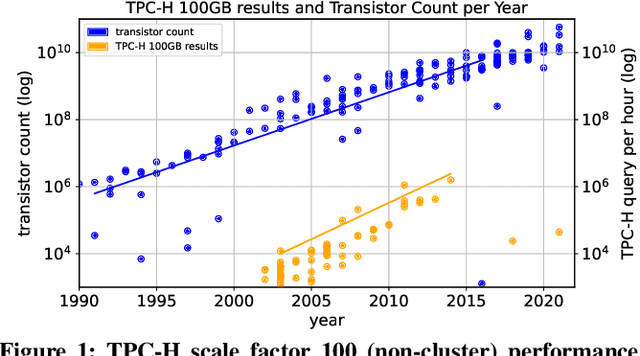

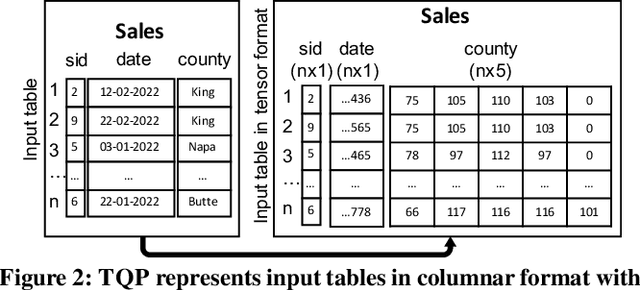
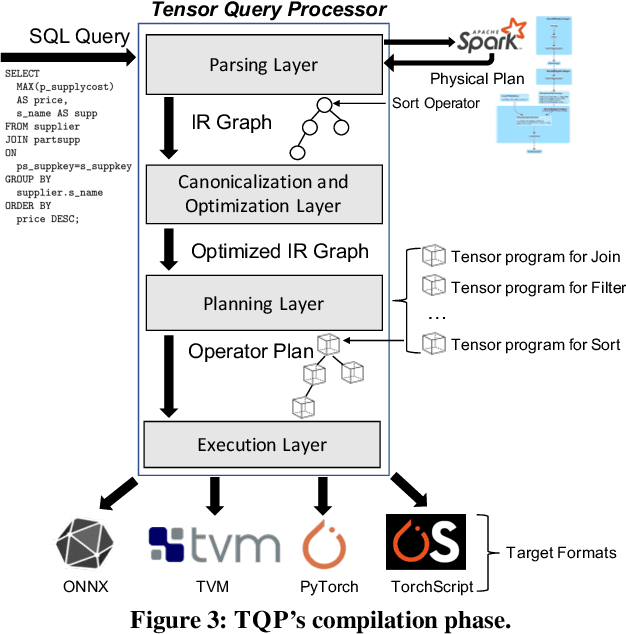
Abstract:The huge demand for computation in artificial intelligence (AI) is driving unparalleled investments in new hardware and software systems for AI. This leads to an explosion in the number of specialized hardware devices, which are now part of the offerings of major cloud providers. Meanwhile, by hiding the low-level complexity through a tensor-based interface, tensor computation runtimes (TCRs) such as PyTorch allow data scientists to efficiently exploit the exciting capabilities offered by the new hardware. In this paper, we explore how databases can ride the wave of innovation happening in the AI space. Specifically, we present Tensor Query Processor (TQP): a SQL query processor leveraging the tensor interface of TCRs. TQP is able to efficiently run the full TPC-H benchmark by implementing novel algorithms for executing relational operators on the specialized tensor routines provided by TCRs. Meanwhile, TQP can target various hardware while only requiring a fraction of the usual development effort. Experiments show that TQP can improve query execution time by up to 20x over CPU-only systems, and up to 5x over specialized GPU solutions. Finally, TQP can accelerate queries mixing ML predictions and SQL end-to-end, and deliver up to 5x speedup over CPU baselines.
 Add to Chrome
Add to Chrome Add to Firefox
Add to Firefox Add to Edge
Add to Edge